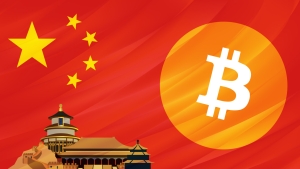China’s crypto ban kicked off in late 2017 and has never really let up. That said, the country still has a sizable underground market for digital assets. Ban be darned: From June 2021 to July 2022, the Chinese mainland recorded US$220 billion in total transactions, more than South Korea or Japan, according to blockchain research firm Chainalysis. Further, Hong Kong and Macau ranked as East Asia’s No. 5 and No. 7 markets in terms of cryptocurrency transactions during that period. Finally, mainland users reportedly made up 8% of the customer base of FTX on the eve of its implosion.
Meanwhile, China is reportedly asking some crypto investors and miners to pay a 20% tax, though it is hard to confirm the accuracy of the related news reports.
In late January, a transcript of a speech Huang Yiping, a former member of the monetary policy committee at the People’s Bank of China (PBOC), made in December about cryptocurrency was published. Huang was careful to state that China’s current crypto trading ban is practical for now, but he suggested Beijing consider the sustainability of such a ban in the long term.
Huang wasn’t advocating for a dramatic reversal of existing policies – such as the use of bitcoin in payments. Rather, he seemed to be questioning whether it would make sense for China to prevent its citizens from investing in an emerging asset class if that asset class eventually goes mainstream – as it seemed to be doing before the recent bear market.
Huang also mentioned that China might miss out on emerging blockchain technologies if it continued to insist on pursuing the former without crypto. He could be right, but we would note that when a threat to stability is perceived, the Chinese government always focuses on mitigating that threat, even if that means losing out on certain opportunities.
That said, Hong Kong appears to have the green light from Beijing to rebuild its reputation as a crypto hub. Hong Kong’s crypto initiative includes a mandatory exchange licensing regime due from June and a consultation on permitting retail trading. Officials have also permitted exchange-traded funds investing in CME Group Inc. Bitcoin and Ether futures. Three such ETFs launched since mid-December have raised over US$80 million.
Bloomberg Intelligence noted in a January report that Hong Kong’s crypto potential would be increased if a current program allowing Chinese investors to buy some stock ETFs in the former British crown colony is eventually expanded to include decentralized virtual currencies. Bloomberg Intelligence estimates total funds under management in Hong Kong ETFs may surpass US$50 billion by year-end.
We will be watching crypto-related developments in Hong Kong closely. While it stands to reason that loosening restrictions on crypto in the mainland would be logical to help the city become a top crypto hub in Asia, both tasks remain a heavy lift. Concerns remain about Hong Kong’s reliability as a financial hub following political and Covid policy problems the past few years. Though the city’s financial regulators are talking a lot about becoming a virtual asset hub, we have yet to see anyone prominent on the mainland speak publicly about the idea.
For now, the biggest boosters of the China/Hong Kong crypto revival idea are the usual non-disinterested suspects. Of China’s plan to tax crypto, Tron founder Justin Sun tweeted, “The tax on transactions is a clear indication that the Chinese government views cryptocurrencies as a legitimate form of wealth and wants to ensure its proper taxation.”

